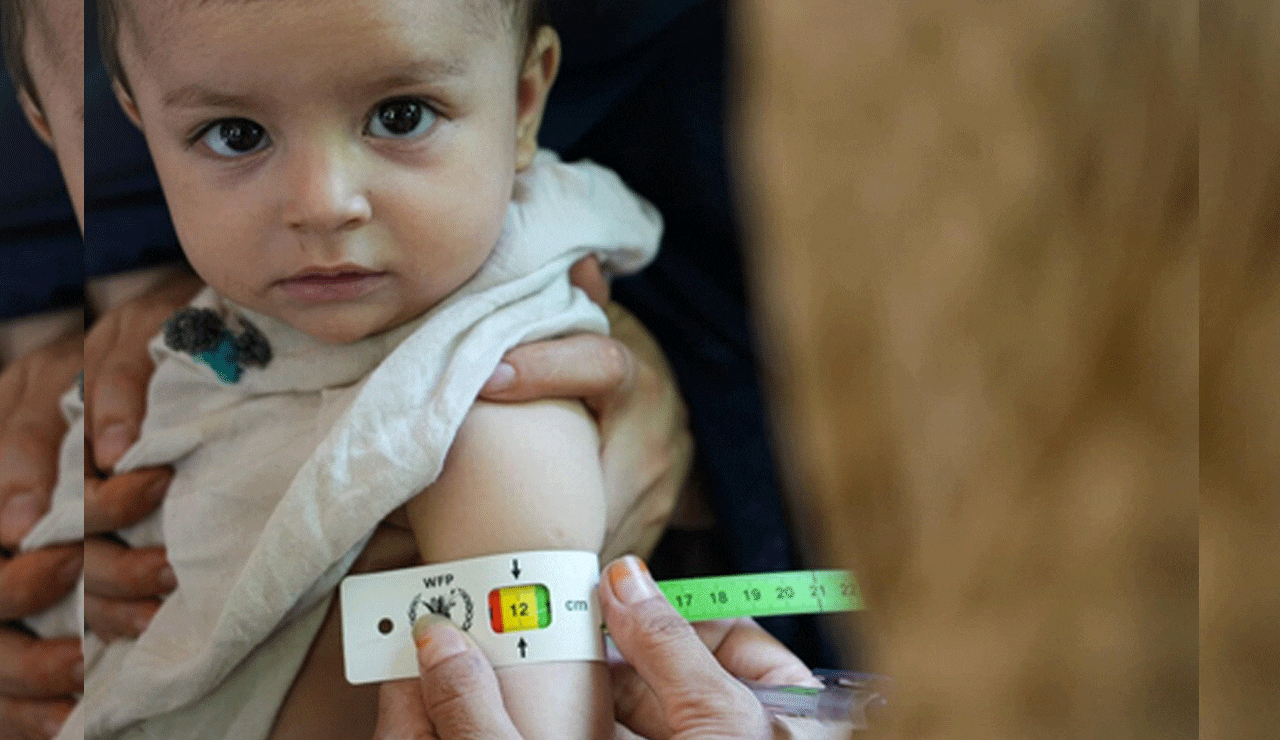UN Urges Immediate Action as 3.5 million Afghan Kids Face Malnutrition Threat
The United Nations World Food Programme (WFP) has issued a stark warning regarding the growing malnutrition crisis in Afghanistan.

The United Nations World Food Programme (WFP) has issued a stark warning regarding the growing malnutrition crisis in Afghanistan. In a report released this week, the WFP highlighted that 3.5 million children are at risk of malnutrition in 2025, and 1.2 million pregnant and breastfeeding mothers are already suffering from nutritional deficiencies, requiring urgent treatment and support.
Table of Contents
Urgent Action Needed to Combat Rising Malnutrition in Afghanistan
Mona Shaikh, the Head of Nutrition for WFP in Afghanistan, emphasized the severity of the situation, stating, “Once a child or a woman becomes malnourished, we have to help them, or they risk worsening to severe malnutrition, which is a life-threatening situation. The mortality risk is very high for moderately malnourished children – three times higher than for children who are not malnourished.”
The WFP’s report also reveals that nearly one-third of Afghanistan’s population—approximately 15 million people—are in urgent need of emergency food assistance. A staggering eight out of ten families in the country cannot afford a minimally nutritious diet, and three out of four families are forced to borrow money to purchase basic groceries.
The Funding Crisis: WFP Needs $555 Million to Continue Critical Operations
The WFP is urgently calling for $555 million in additional funding to sustain its life-saving programs over the next six months. Without the necessary funds, critical initiatives like malnutrition treatment, school feeding programs, and vocational training for women and children will be at risk.
Also Read: US Embassy Cracks Down on Visa Fraud, Cancels 2,000 Appointments in India!
Currently, the WFP can provide emergency food assistance to just over 6 million people per month, far less than the nearly 15 million individuals who are in desperate need of support.
WFP’s Progress in Afghanistan: Addressing Malnutrition in Women and Children
In 2024, the WFP managed to reach nearly 10 million women and children across Afghanistan, providing treatment for 1 million mothers and 1.4 million children suffering from malnutrition. However, the situation remains dire, especially for female-headed households, with two-thirds unable to afford essential nutrition—20% higher than male-headed households.
Long-Term Effects of Malnutrition and the Need for Immediate Action
Malnutrition in children causes irreversible damage to physical and cognitive development, weakens immune systems, stunts growth, and limits brain function. According to the WFP, malnutrition often begins during pregnancy, making prevention programs targeting at-risk mothers and children critical in curbing the crisis.
WFP Executive Director Cindy McCain made a compelling call for action, stating, “We must prevent child malnutrition before it ever takes hold. If we fail to act, we are condemning millions of children to a lifetime of suffering. WFP has the knowledge and tools to stop malnutrition in its tracks—what we need is investment and political will.”
A Call for Global Support
The WFP’s report underscores the urgent need for international investment and support to combat the worsening malnutrition crisis in Afghanistan. With millions of lives at stake, including those of vulnerable women and children, global solidarity is crucial to address the situation before it worsens.

